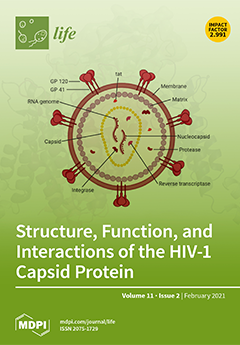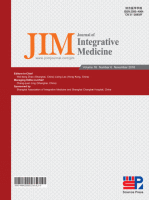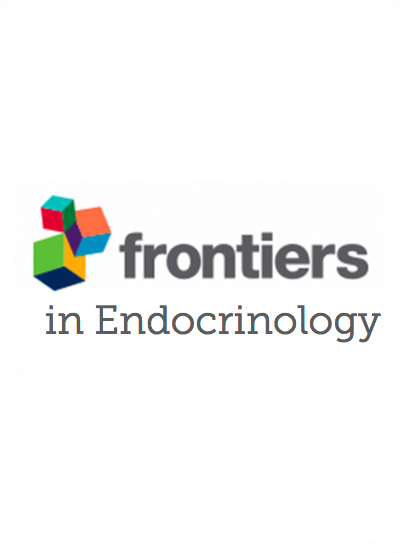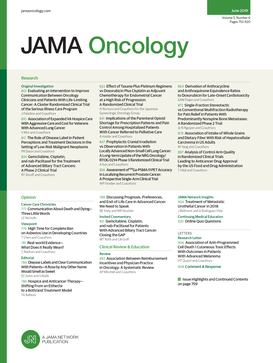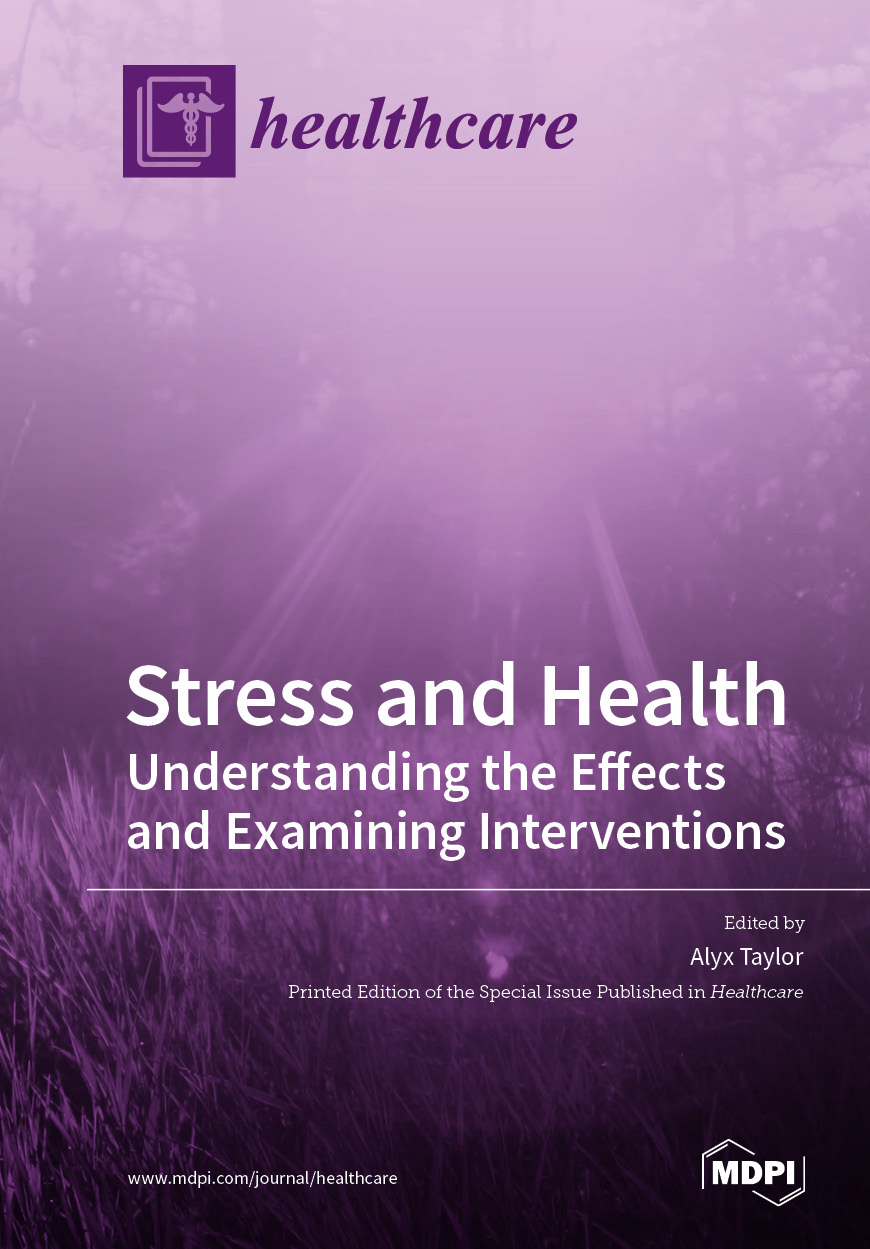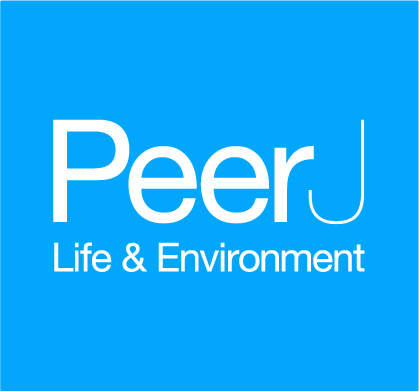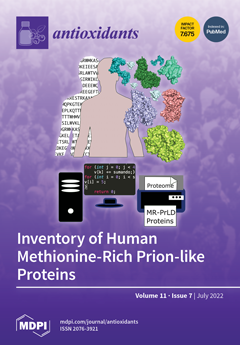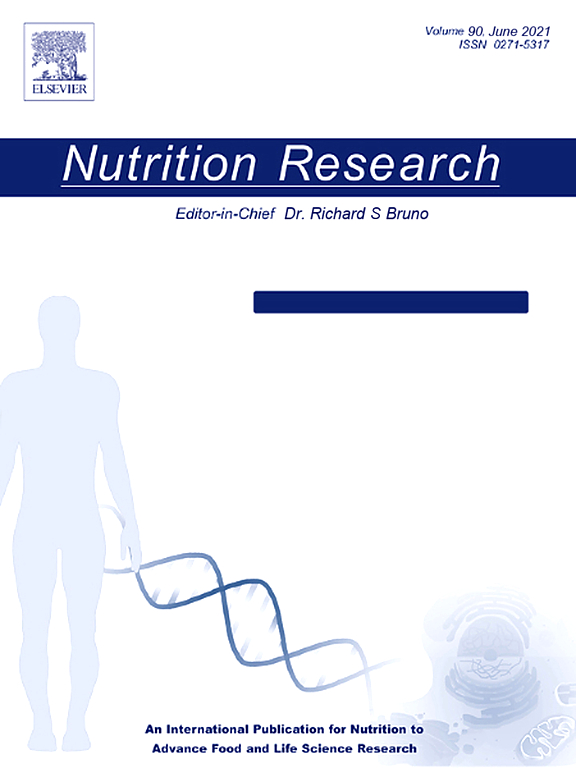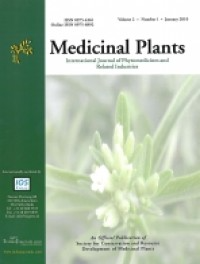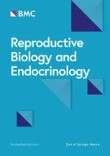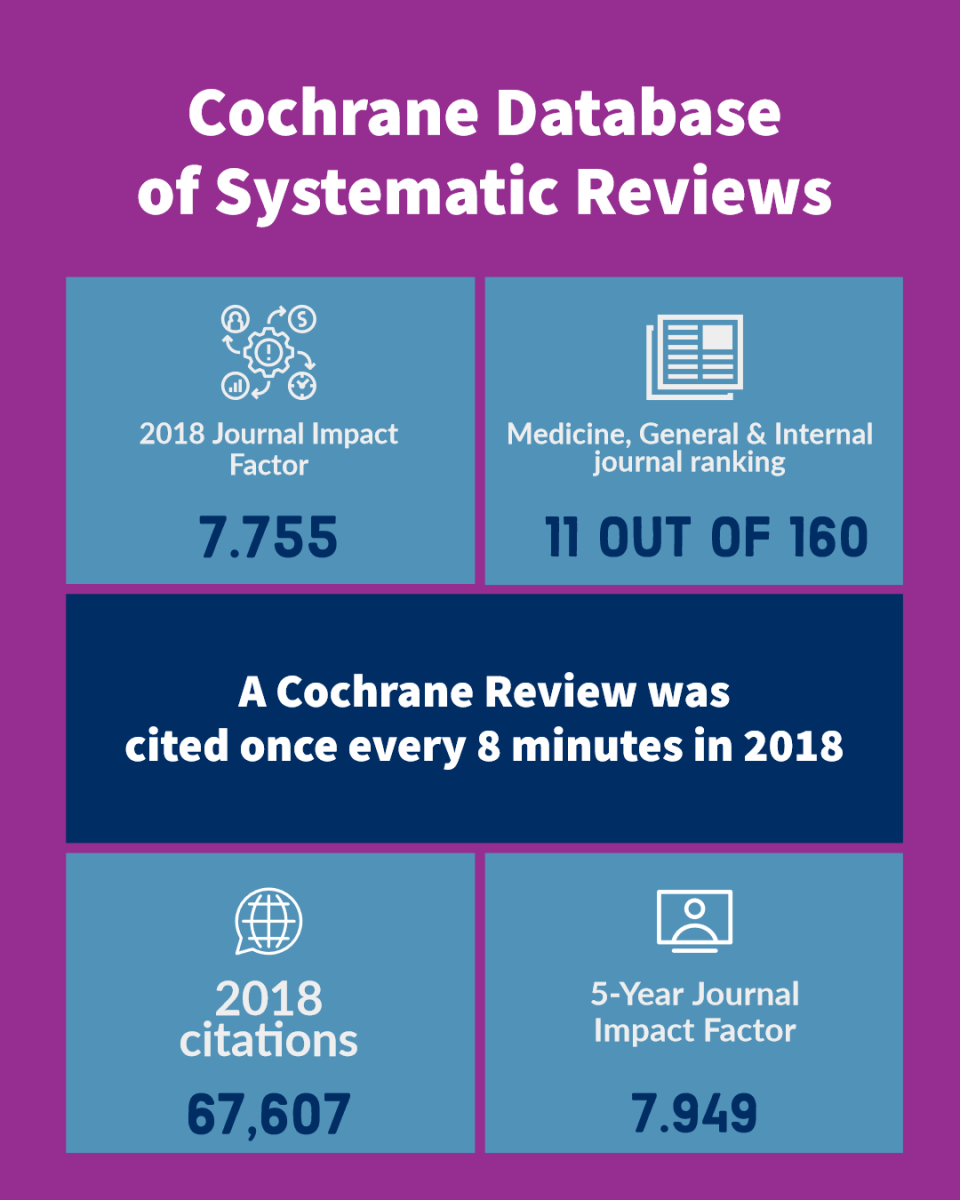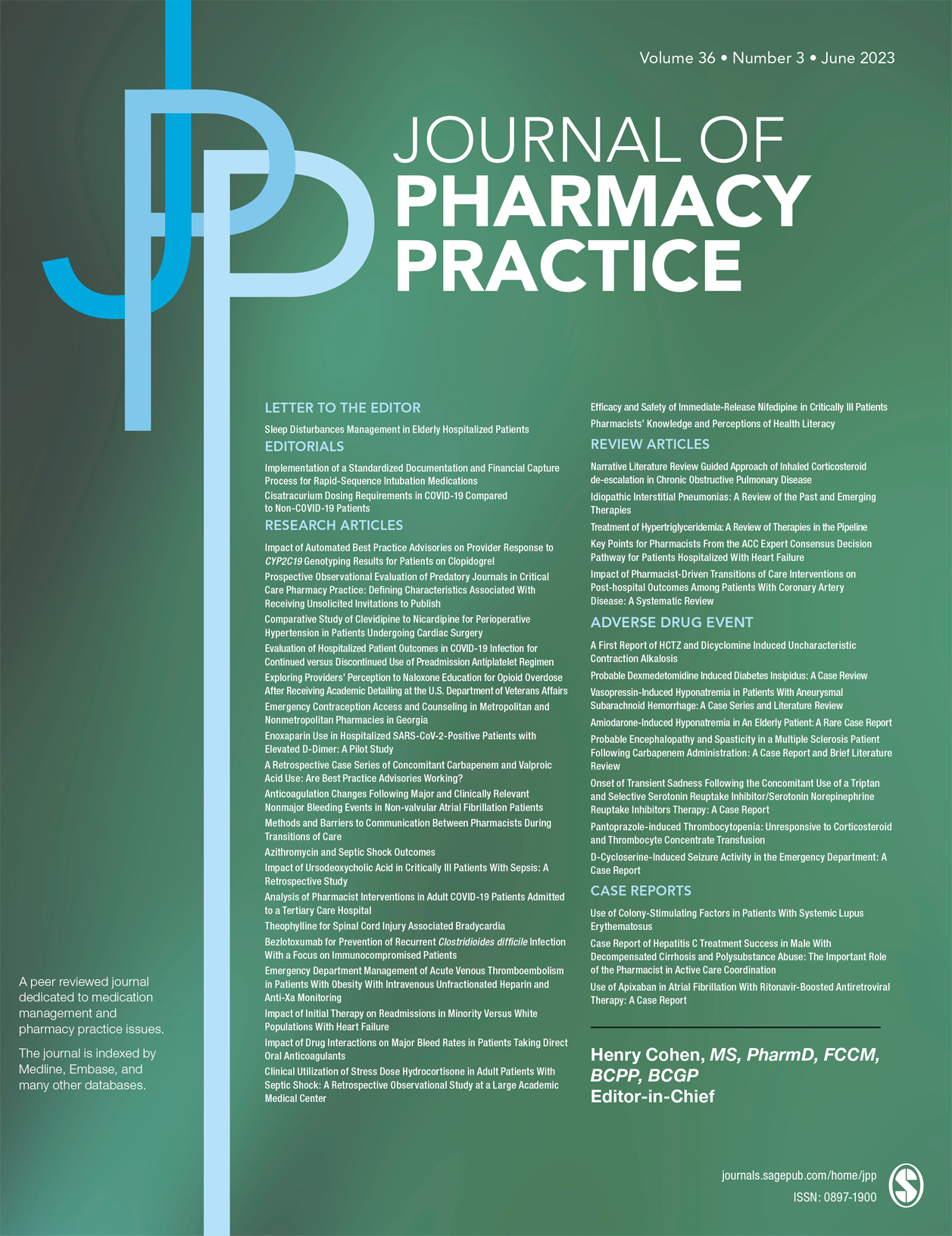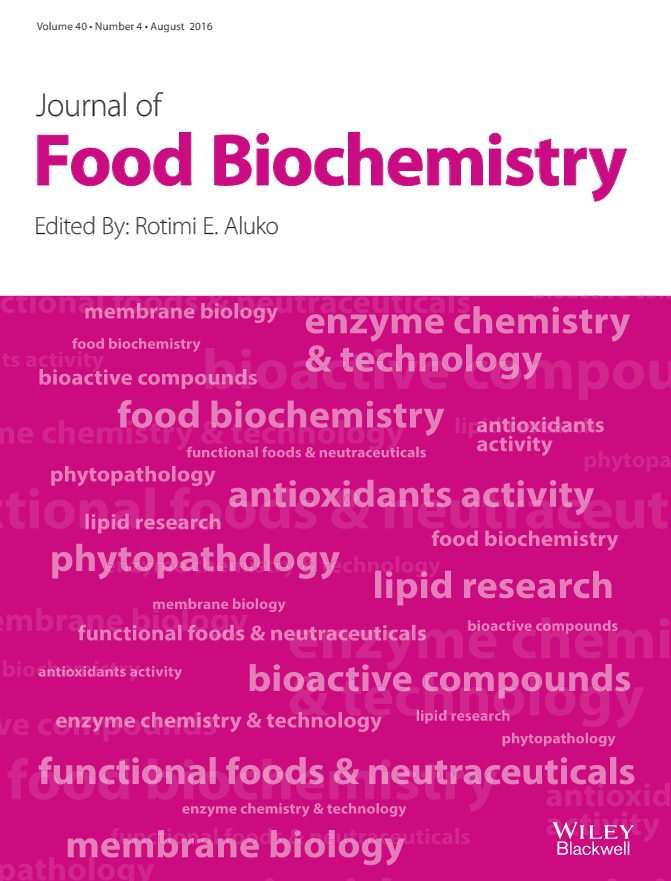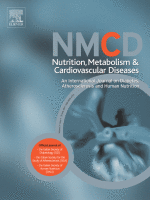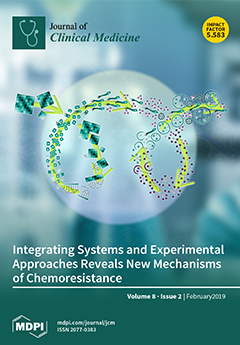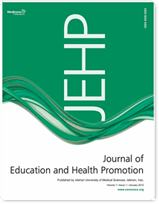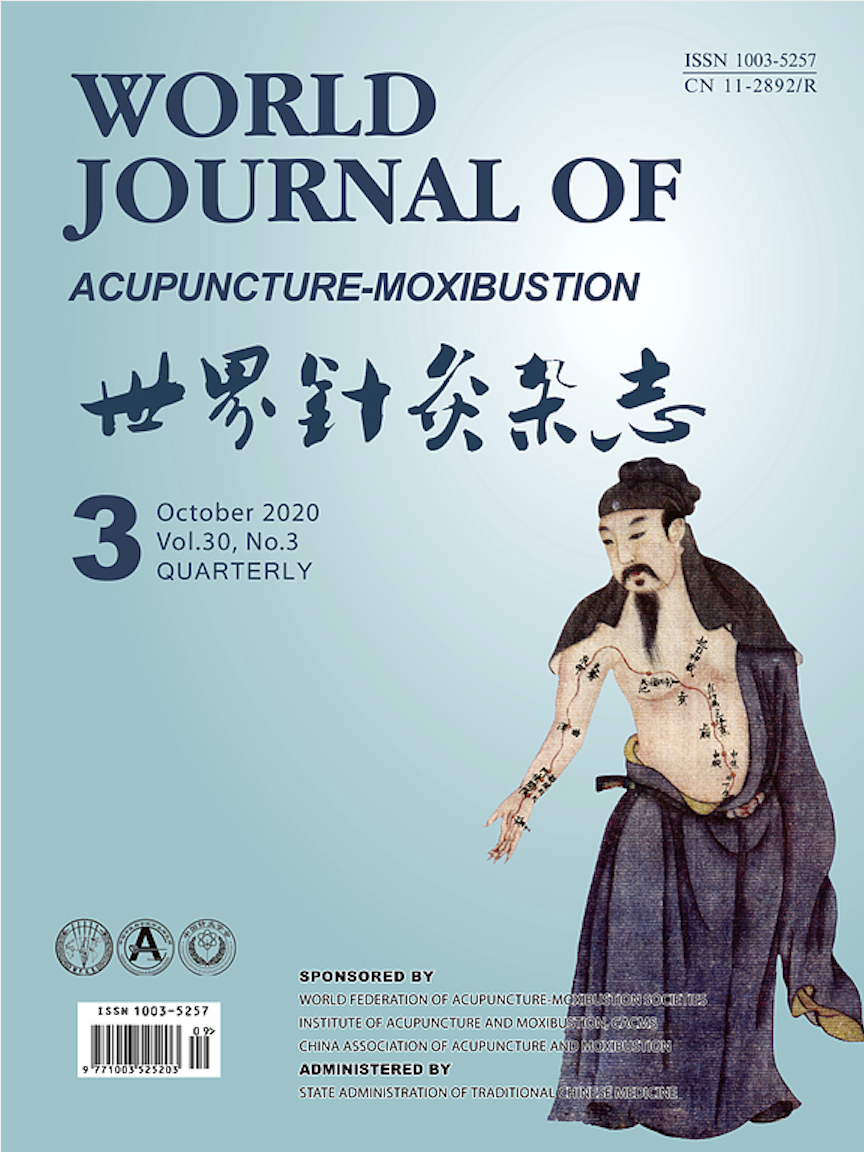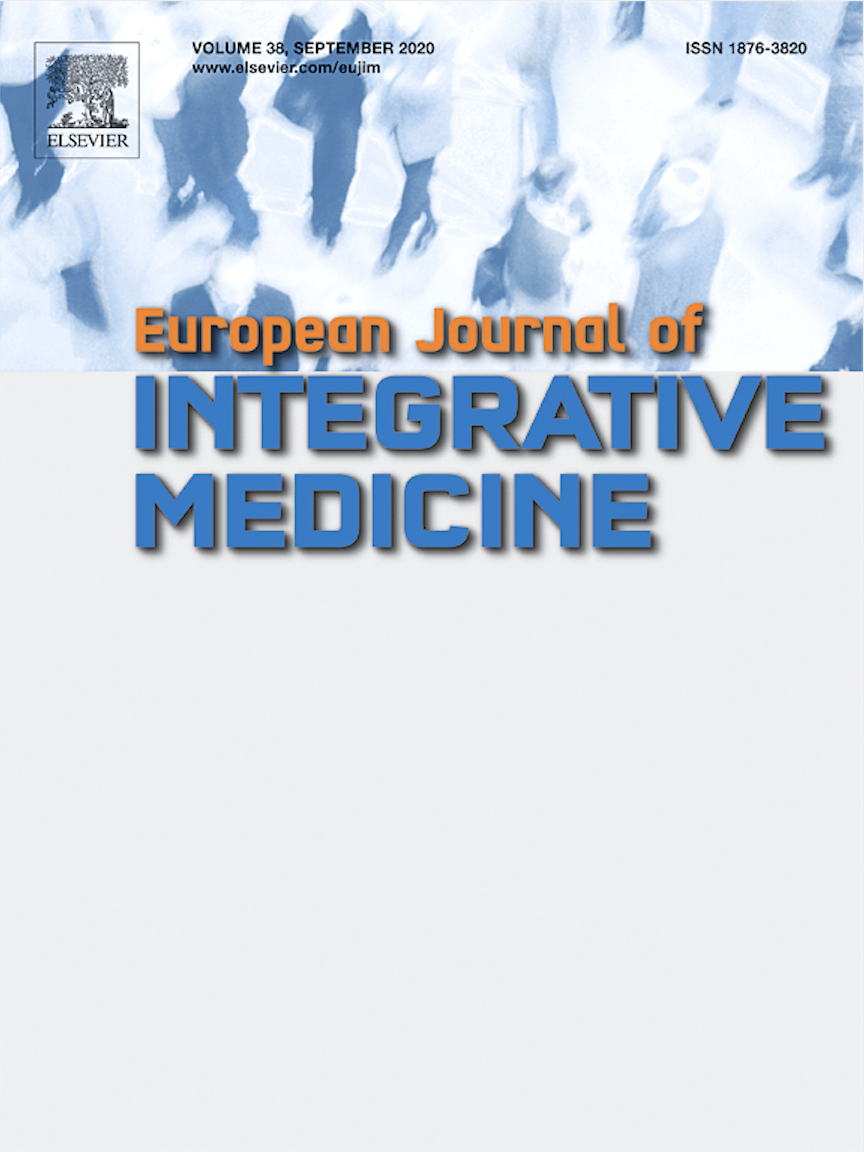Presentation Slides
Chinese Medicine Research Hub
Review Article
Pomegranate extract could potentially benefit women's reproductive health, enhance fertility, regulate menstrual cycles, support pregnancy, and help treat polycystic ovary syndrome.
2024 Life Therapeutic Potential of Pomegranate Extract for Women’s Reproductive Health and Breast Cancer
Jang JY, Kim D, Im E, Kim ND
Chinese Medicine Research Hub
Randomised Controlled Trial
Propolis supplementation positively influences metabolic factors, testosterone levels, lipid profile, and body measurements in women suffering from polycystic ovarian syndrome.
2023 Phytotherapy Research The effects of propolis supplementation on high‐sensitivity C‐reactive protein, testosterone hormone, and metabolic profile in women with polycystic ovary syndrome: A randomized, triple‐blinded, placebo‐controlled clinical trial
Abbasi E, Bagherniya M, Soleimani D, Ghasemi‐Tehrani H, Abbaspour M, Clark CCT, Askari G
Chinese Medicine Research Hub
Network Pharmacology
The compounds apocarotenoids and carotenoids found in saffron extract could potentially interact with multiple targets, helping to manage the symptoms of polycystic ovary syndrome.
2023 Medicine Network pharmacology-based strategic prediction and target identification of apocarotenoids and carotenoids from standardized Kashmir saffron (Crocus sativus L.) extract against polycystic ovary syndrome
Tiwari A, Modi SJ, Girme A, Hingorani L
Chinese Medicine Research Hub
Review Article
Green tea helps alleviate symptoms in multiple benign gynecological disorders, primarily due to a compound called Epigallocatechin-3-gallate.
2023 Nutrients Green Tea and Benign Gynecologic Disorders: A New Trick for An Old Beverage?
Hazimeh D, Massoud G, Parish M, Singh B, Segars J, Islam MS
Chinese Medicine Research Hub
Randomised Controlled Trial
Pomegranate juice supplementation has been found to effectively decrease testosterone levels in overweight and obese women diagnosed with polycystic ovary syndrome.
2023 Phytotherapy Research The effect of concentrated pomegranate juice on biomarkers of inflammation, oxidative stress, and sex hormones in overweight and obese women with polycystic ovary syndrome: A randomized controlled trial
Abedini M, Ramezani‐Jolfaie N, Ghasemi‐Tehrani H, Tarrahi MJ, Amani R
Chinese Medicine Research Hub
Systematic Review
Acupuncture, when used in conjunction with medicine or alone, appears to improve certain PCOS outcomes such as ovulation rate and recovery of menstrual cycle.
2022 Journal of Integrative Medicine Efficacy and safety of acupuncture for polycystic ovary syndrome: An overview of systematic reviews
Yang H, Xiao Z, Yin Z, Yu Z, Liu J, Xiao Y, Zhou Y, Li J, Yang J, Liang F
Chinese Medicine Research Hub
Randomised Controlled Trial
In women with polycystic ovary syndrome, cinnamon reduced insulin resistance and testosterone levels similar to metformin, and ginger decreased follicle-stimulating and luteinizing hormones.
2022 Frontiers in Nutrition A comparison of the effects of cinnamon, ginger, and metformin consumption on metabolic health, anthropometric indices, and sexual hormone levels in women with poly cystic ovary syndrome: A randomized double-blinded placebo-controlled clinical trial
Dastgheib M, Barati-Boldaji R, Bahrampour N, Taheri R, Borghei M, Amooee S, Mohammadi-Sartang M, Wong A, Babajafari S, Mazloomi SM
Chinese Medicine Research Hub
Network Pharmacology
The primary ingredient of Shenling Baizhu powder, Rutin, can improve polycystic ovary syndrome and postmenopausal osteoporosis by binding to the aromatic hydrocarbon receptor, thus inhibiting cell apoptosis.
2022 PeerJ Prevention of polycystic ovary syndrome and postmenopausal osteoporosis by inhibiting apoptosis with Shenling Baizhu powder compound
Liang J, Bao A, Ma H, Dong W, Li W, Wu X, Li H, Hou H, Chen Y, Fu J, Shao C
Chinese Medicine Research Hub
Network Pharmacology
Kelulut honey, either alone or in combination with metformin or clomiphene, can alleviate oxidative stress and reproductive and metabolic abnormalities in rats with polycystic ovary syndrome.
2022 Antioxidants Kelulut Honey Ameliorates Oestrus Cycle, Hormonal Profiles, and Oxidative Stress in Letrozole-Induced Polycystic Ovary Syndrome Rats
Kamal DAM, Ibrahim SF, Ugusman A, Mokhtar MH
Chinese Medicine Research Hub
Experimental Study
Pomegranate juice extract may reduce the damage to the endometrium in Polycystic ovary syndrome through its antioxidant, anti-inflammatory, anti-fibrotic, and anti-proliferative effects.
2022 Morphologie Role of pomegranate extract in restoring endometrial androgen receptor expression, proliferation, and pinopodes in a rat model of polycystic ovary syndrome
Ibrahim MAA, Sadek MT, Sharaf Eldin HEM
Chinese Medicine Research Hub
Systematic Review
PCOS patients suggests that combining acupuncture with metformin might enhance pregnancy and ovulation rates, as well as improve insulin resistance.
2022 Frontiers in Endocrinology Acupuncture combined with metformin versus metformin alone to improve pregnancy rate in polycystic ovary syndrome: A systematic review and meta-analysis
Chen X, Lan Y, Yang L, Liu Y, Li H, Zhu X, Zhao Y, Long C, Wang M, Xie Q, Li Z, Wu J
Chinese Medicine Research Hub
Meta-Analysis
Green tea supplementation can significantly reduce body weight in women with polycystic ovary syndrome, hence potentially beneficial in its clinical management.
2022 Nutrition Research Green tea promotes weight loss in women with polycystic ovary syndrome: Systematic review and meta-analysis
Colonetti L, Grande AJ, Toreti IR, Ceretta LB, da Rosa MI, Colonetti T
Chinese Medicine Research Hub
Systematic Review
Among patients with PCOS, the combined use of acupuncture and moxibustion as a complementary therapy has additional efficacy regarding increased pregnancy and ovulation rates and reduced miscarriage rate.
2022 Evidence-Based Complementary and Alternative Medicine Effects of Acupuncture Combined with Moxibustion on Reproductive and Metabolic Outcomes in Patients with Polycystic Ovary Syndrome: A Systematic Review and Meta-Analysis
Li P, Peng J, Ding Z, Zhou X, Liang R
Chinese Medicine Research Hub
Experimental Study
Saffron petal extract and anthocyanins can alleviate symptoms of Polycystic Ovary Syndrome by rectifying hormonal imbalances and reducing inflammation in PCOS mice.
2022 Journal of Ethnopharmacology Crocus sativus (saffron) petals extract and its active ingredient, anthocyanin improves ovarian dysfunction, regulation of inflammatory genes and antioxidant factors in testosterone-induced PCOS mice
Moshfegh F, Balanejad SZ, Shahrokhabady K, Attaranzadeh A
Chinese Medicine Research Hub
Randomised Controlled Trial
Chamomile can significantly improve menstrual regulation and decrease testosterone levels in women of reproductive age with polycystic ovary syndrome.
2022 Medicinal Plants - International Journal of Phytomedicines and Related Industries The effect of chamomile on menstruation pattern and serum androgens in polycystic ovary syndrome
Heidary M, Dokuhaki S, Yazdanpanahi Z, Dabbaghmanesh MH, Emamghoreishi M, Akbarzadeh M
Chinese Medicine Research Hub
Meta-Analysis
Tea supplements, especially green tea, significantly decrease fasting blood glucose and fasting insulin levels and reduce body weight in women with polycystic ovary syndrome.
2021 Frontiers in Endocrinology Effects of Tea Consumption on Anthropometric Parameters, Metabolic Indexes and Hormone Levels of Women with Polycystic Ovarian Syndrome: A Systematic Review and Meta-Analysis of Randomized Controlled Trials
Shen W, Pan Y, Jin B, Zhang Z, You T, Qu Y, Han M, Yuan X, Zhang Y
Chinese Medicine Research Hub
Systematic Review
Cinnamon supplementation may significantly enhance metabolic status in women with polycicstic ovary syndrome, notably improving high-density lipoprotein and insulin sensitivity, and decreasing low-density lipoprotein, triglyceride, and blood glucose levels.
2021 Journal of Ovarian Research Mechanistic and therapeutic insight into the effects of cinnamon in polycystic ovary syndrome: a systematic review
Maleki V, Faghfouri AH, Tabrizi FPF, Moludi J, Saleh-Ghadimi S, Jafari-Vayghan H, Qaisar SA
Chinese Medicine Research Hub
Review Article
Recent findings suggest that the molecular background to the development of insulin resistance may be related to vitamin D deficiency.
2021 Nutrients Mechanisms Involved in the Relationship between Vitamin D and Insulin Resistance: Impact on Clinical Practice
Contreras-Bolívar V, García-Fontana B, García-Fontana C, Muñoz-Torres M
Chinese Medicine Research Hub
Systematic Review
Green tea extract could be considered a potential agent to attenuate PCOS complications mainly due to its effect on weight loss and glycemic levels.
2021 Reproductive Biology and Endocrinology A comprehensive insight into effects of green tea extract in polycystic ovary syndrome: a systematic review
Maleki V, Taheri E, Varshosaz P, Tabrizi FPF, Moludi J, Jafari-Vayghan H, Shadnoush M, Jabbari SHY, Seifoleslami M, Alizadeh M
Chinese Medicine Research Hub
Systematic Review
The addition of CHM to clomiphene may improve pregnancy rates.
2021 Cochrane Database of Systematic Reviews Chinese herbal medicine for subfertile women with polycystic ovarian syndrome
Zhou K, Zhang J, Xu L, Lim CED
Chinese Medicine Research Hub
Systematic Review
A total of 18 publications were included, all indicating improved PCOS symptoms with Chinese medicine compared to control groups.
2021 Evidence-Based Complementary and Alternative Medicine An Overview of Systematic Reviews of Using Chinese Medicine to Treat Polycystic Ovary Syndrome
Wang L, Liang R, Tang Q, Zhu L
Chinese Medicine Research Hub
Review Article
Green tea and its chief bioactive component have the potential to improve certain female reproductive disorders such as endometriosis, polycystic ovary syndrome, and dysmenorrhea.
2021 Molecules Beneficial Effects of Green Tea Catechins on Female Reproductive Disorders: A Review
Kamal DAM, Salamt N, Zaid SSM, Mokhtar MH
Chinese Medicine Research Hub
Systematic Review
Acupuncture alone or traditional Chinese medicines (taken orally) in combination with western medicine significantly increased the pregnancy rate of PCOS patients and CAM was more effective than western medicine alone for improving hormone levels.
2021 Evidence-Based Complementary and Alternative Medicine Complementary and Alternative Medicine for the Treatment of Abnormal Endometrial Conditions in Women with PCOS: A Systematic Review and Meta-Analysis of Randomized Controlled Trials
Jiayu Hu, Wenhua Shi, Jiayue Xu, Shaoxuan Liu, Siya Hu, Wenjing Fu, Jing Wang and Fengjuan Han
Chinese Medicine Research Hub
Systematic Review
Black cohosh indicated potential benefits in hormone regulation and endometrial thickness, alongside safety in short-term use.
2021 Journal of Pharmacy Practice Systematic Review of Black Cohosh (Cimicifuga racemosa) for Management of Polycystic Ovary Syndrome-Related Infertility
Fan CW, Cieri-Hutcherson NE, Hutcherson TC
Chinese Medicine Research Hub
Systematic Review
Acupuncture could improve body mass index, waist-to-hip ratio as well as insulin resistance (HOMA-IR) in patients with PCOS.
2021 Evidence-Based Complementary and Alternative Medicine The Effect of Acupuncture on Glucose Metabolism and Lipid Profiles in Patients with PCOS: A Systematic Review and Meta-Analysis of Randomized Controlled Trials
Ruqun Zheng, Peng Qing, Mei Han, Jinlong Song, Min Hu, Hongxia Ma, Juan Li
Chinese Medicine Research Hub
Experimental Study
Pomegranate seed oil, rich in conjugated linolenic acid, potentially acts as a cytotoxic agent on tissue tumor cells, reducing polycystic ovary syndrome manifestations.
2021 JBRA Assisted Reproduction The effect of pomegranate seed oil on human health, especially epidemiology of polycystic ovary syndrome; a systematic review
Bahmani M, Shokri S, Akhtar ZN, Abbaszadeh S, Manouchehri A
Chinese Medicine Research Hub
Review Article
Herbal medicines were shown to normalize female hormones, diminish male hormones, recover the estrous cycle, ameliorate insulin resistance, and improve lipid metabolism in PCOS.
2020 Frontiers in Pharmacology Therapeutic Effects and Mechanisms of Herbal Medicines for Treating Polycystic Ovary Syndrome: A Review
Kwon Chan-Young, Cho Ik-Hyun, Park Kyoung Sun
Chinese Medicine Research Hub
Randomised Controlled Trial
Concentrated pomegranate juice consumption can potentially lower cardiovascular disease risk factors in women with polycystic ovary syndrome.
2020 Phytotherapy Research The effect of concentrated pomegranate juice consumption on risk factors of cardiovascular diseases in women with polycystic ovary syndrome: A randomized controlled trial
Abedini M, Ghasemi‐Tehrani H, Tarrahi MJ, Amani R
Chinese Medicine Research Hub
Systematic Review
Cinnamon supplementation contributes to the improvement of insulin resistance in patients with PCOS.
2020 Journal of Food Biochemistry The effect of cinnamon supplementation on glycemic control in women with polycystic ovary syndrome: A systematic review and meta-analysis
Javad Heshmati, Mahdi Sepidarkish, Mojgan Morvaridzadeh, Farnaz Farsi, Nishant Tripathi, Maryam Razavi, Mahroo Rezaeinejad
Chinese Medicine Research Hub
Systematic Review
Acupuncture could promote the recovery of menstrual cycles as well as downregulate the levels of LH and testosterone in patients with PCOS.
2020 Medicine Effectiveness of acupuncture in polycystic ovary syndrome
Wu J, Chen D, Liu N
Chinese Medicine Research Hub
Systematic Review
Cinnamon supplementation may help manage metabolic parameters in polycystic ovary syndrome patients by reducing fasting blood sugar, insulin, LDL-C, total cholesterol, and triacylglycerol levels.
2020 Journal of Ethnopharmacology Effects of cinnamon on controlling metabolic parameters of polycystic ovary syndrome: A systematic review and meta-analysis
Heydarpour F, Hemati N, Hadi A, Moradi S, Mohammadi E, Farzaei MH
Chinese Medicine Research Hub
Systematic Review
Range of herbs like Cinnamomum verum, Trigonella foenum-graecum L., and Vitex agnus-castus, which can potentially address various PCOS-related concerns such as menstrual irregularities, obesity, and insulin resistance.
2019 DARU Journal of Pharmaceutical Sciences A comprehensive review of clinical studies with herbal medicine on polycystic ovary syndrome (PCOS)
Moini Jazani, A., Nasimi Doost Azgomi, H., Nasimi Doost Azgomi, A. et al.
Chinese Medicine Research Hub
Randomised Controlled Trial
Synbiotic pomegranate juice daily consumption for 8 weeks enhances metabolic, oxidative, inflammatory, and blood pressure outcomes in females with Polycystic Ovarian Syndrome.
2019 Journal of Endocrinological Investigation The effect of synbiotics pomegranate juice on cardiovascular risk factors in PCOS patients: a randomized, triple-blinded, controlled trial
Esmaeilinezhad Z, Barati-Boldaji R, Brett NR, de Zepetnek JOT, Bellissimo N, Babajafari S, Sohrabi Z
Chinese Medicine Research Hub
Randomised Controlled Trial
Synbiotic pomegranate juice (containing inulin and lactobacillus) can improve insulin resistance, reduce testosterone level, and aid weight loss in women suffering from Polycystic Ovarian Syndrome.
2019 Nutrition, Metabolism and Cardiovascular Diseases Effect of synbiotic pomegranate juice on glycemic, sex hormone profile and anthropometric indices in PCOS: A randomized, triple blind, controlled trial
Esmaeilinezhad Z, Babajafari S, Sohrabi Z, Eskandari MH, Amooee S, Barati-Boldaji R
Chinese Medicine Research Hub
Systematic Review
Berberine's potential similarity to metformin in addressing glycolipid metabolism and insulin sensitivity, and exploring promising combinations involving berberine, metformin, and cyproterone acetate for treating polycystic ovary syndrome with insulin resistance.
2018 Evidence-Based Complementary and Alternative Medicine The Effect of Berberine on Polycystic Ovary Syndrome Patients with Insulin Resistance (PCOS-IR): A Meta-Analysis and Systematic Review
Meng-Fei Li, Xiao-Meng Zhou, Xue-Lian Li
Chinese Medicine Research Hub
Animal Study
Welsh onion root extract administration influenced aromatase production, enhanced the estrogen steroid synthesis, and consequently restored the estrogenic feedback mechanism on the pituitary-ovary system.
2018 Nutrients Welsh Onion Root (Allium fistulosum) Restores Ovarian Functions from Letrozole Induced-Polycystic Ovary Syndrome
Lee YH, Yang H, Lee SR, Kwon SW, Hong EJ, Lee HW.
Chinese Medicine Research Hub
Systematic Review
Chinese herbal medicine combined with moxibustion might be beneficial for treating PCOS, and the treatment might improve the therapeutic effects of conventional western medications including clomiphene citrate, oral contraceptives, and/or metformin.
2018 Medicine Oriental herbal medicine and moxibustion for polycystic ovary syndrome
Kwon, Chan-Young, Lee, Boram, Park, Kyoung Sun
Chinese Medicine Research Hub
Traditional Chinese Medicine, particularly Jia Wei Xiao Yao San and Xiang Fu, is widely utilized in Taiwan for managing Polycystic ovary syndrome symptoms.
2018 Journal of Clinical Medicine Investigation on the Use of Traditional Chinese Medicine for Polycystic Ovary Syndrome in a Nationwide Prescription Database in Taiwan
Liao WT, Chiang JH, Li CJ, Lee MT, Su CC, Yen HR
Chinese Medicine Research Hub
Systematic Review
Acupuncture may increase the clinical pregnancy rate and ongoing pregnancy rate and decrease the risk of ovarian hyperstimulation syndrome in women with PCOS undergoing IVF or ICSI.
2017 Acupuncture in Medicine Effectiveness of Acupuncture in Women with Polycystic Ovarian Syndrome Undergoing in Vitro Fertilisation Or Intracytoplasmic Sperm Injection: A Systematic Review and Meta-Analysis
Jo J, Lee YJ
Chinese Medicine Research Hub
Systematic Review
Acupuncture adjuvant to other active medications could affect hormonal levels such as LH, LH/FSH ratio, testosterone, and fasting insulin in women with polycystic ovarian syndrome.
2017 Medicine Acupuncture for polycystic ovarian syndrome: A systematic review and meta-analysis
Jo, J., Lee, Y. J., & Lee, H.
Chinese Medicine Research Hub
Randomised Controlled Trial
Green tea consumption leads to weight loss and decreased levels of fasting insulin and free testosterone in overweight women with polycystic ovarian syndrome.
2017 Journal of Education and Health Promotion Effect of green tea on metabolic and hormonal aspect of polycystic ovarian syndrome in overweight and obese women suffering from polycystic ovarian syndrome: A clinical trial
Tehrani HG, Allahdadian M, Zarre F, Ranjbar H, Allahdadian F
Chinese Medicine Research Hub
Systematic Review
Acupuncture's acupoint selection for treating PCOS, identifying top acupoints like Sānyīnjiāo (SP 6) and Guānyuán (CV 4). Findings reveal modern acupuncture's alignment with traditional theory, often targeting abdomen and lower limb points, including front-mu, he-sea, matching, and back-shu points.
2016 World Journal of Acupuncture-Moxibustion The rules of acupoint-selection of acupuncture for polycystic ovary syndrome based on data mining
YU C, KONG L, MA C, SHEN F, YAO GJ, XIONG Y, ZHOU H
Chinese Medicine Research Hub
Systematic Review
Acupuncture may have a positive impact on recovering menstrual cycles, reducing BMI, and lowering luteinizing hormone (LH) levels in women with polycystic ovarian syndrome (PCOS).
2016 European Journal of Integrative Medicine The effects of acupuncture on polycystic ovary syndrome: A systematic review and meta-analysis
Qu F, Wu Y, Hu XY, Barry JA, Zhou J, Wang FF, Ye YH, Zhang R, Han SP, Han JS, Li R, Taw MB, Hardiman PJ, Robinson N
Chinese Medicine Research Hub
Experimental Study
Pomegranate juice extract significantly improves hormonal changes in female rats with Polycystic Ovary Syndrome.
2015 Biomedical and Pharmacology Journal The Effect of Pomegranate Juice Extract on Hormonal Changes of Female Wistar Rats Caused by Polycystic Ovarian Syndrome
HOSSEIN KARGAR, LEILA KARGAR, EBRAHIM TAVAKOL, NAZANIN SHAFIEI, FARZAD POORGHOLAMI, ELHAM RAHMANIAN, MOHAMMAD POURAHMADI, ZAHRA HASANPOUR
Chinese Medicine Research Hub
Systematic Review
There are potential benefits of herbal medicine in addressing the complex symptoms of PCOS, supported by both pre-clinical and clinical evidence.
2014 BMC Complementary Medicine and Therapies Herbal medicine for the management of polycystic ovary syndrome (PCOS) and associated oligo/amenorrhoea and hyperandrogenism; a review of the laboratory evidence for effects with corroborative clinical findings
Susan Arentz, Jason Anthony Abbott, Caroline Anne Smith & Alan Bensoussan
Chinese Medicine Research Hub
Systematic Review
Acupuncture shows promise in treating polycystic ovary syndrome (PCOS).
2014 2014 IEEE Workshop on Electronics, Computer and Applications Acupuncture for polycystic ovary syndrome: A systematic review and meta-analysis
Hong Ma, Xiaohong Quan, Jianwei Li, Bin and Xiuhua Chen
Chinese Medicine Research Hub
Systematic Review
Acupuncture and herbal medicine show promise in alleviating premenstrual syndrome and premenstrual dysphoric disorder symptoms, with over 50% relief and proven safety.
2014 BMC Complementary Medicine and Therapies Effects and treatment methods of acupuncture and herbal medicine for premenstrual syndrome/premenstrual dysphoric disorder: systematic review
Jang SH, Kim DI, Choi MS
Executive Summary
Write an executive summary in the form of a blog article on the topic of "Research into Chinese medicine treatment for PCOS" summarising the research below and using language that can be easily understood by patients and avoiding medical jargon using a professional and caring tone of voice.
Write an executive summary in the form of a blog article on the topic of "Researched Chinese medicine treatments for PCOS" summarising the research below in an objective and easy to understand way, and using language that can be easily understood by patients. Group the article into Chinese medicine treatments first, followed by nutrition and other treatments. Avoid using medical jargon and use a professional and caring tone of voice.
Write me a concise but easy to understand executive summary on the topic of "Chinese medicine treatments for PCOS" based on the following research that I will give you. Your summary should be 2 paragraphs long in Australian English spelling and include references to the studies.
A Review Article published in 2024 in the journal Life found that Pomegranate extract could potentially benefit women's reproductive health, enhance fertility, regulate menstrual cycles, support pregnancy, and help treat polycystic ovary syndrome. In establishing the potential benefits of pomegranate extract in women's reproductive health, a wide array of methods was employed. Primarily, these included in vitro studies, animal modeling and certain clinical trials. Analyses of the antioxidant properties of the extract were done to ascertain its effectiveness in reducing oxidative stress and consequently, improving fertility. The influence of pomegranate extract on hormonal imbalances and menstrual regulation was also studied.
Discussions on the results emphasized the potential of pomegranate extract in supporting women's reproductive health. The extract was found beneficial in enhancing fertility, regulating menstruation and supporting pregnancy. Further, it could help in polycystic ovary syndrome therapy by improving insulin sensitivity and reducing oxidative damage. Its rich nutrient composition was appreciated for potentially fostering placental development and fetal growth, thus possibly mitigating the risk of early birth. Apart from reproductive health, some studies pointed towards pomegranate extract's potential anticancer properties, primarily against breast cancer.
A Randomised Controlled Trial published in 2023 in the journal Phytotherapy Research found that Propolis supplementation positively influences metabolic factors, testosterone levels, lipid profile, and body measurements in women suffering from polycystic ovarian syndrome. The research was a triple-blind controlled trial constructed to consider the effects of propolis on women with polycystic ovarian syndrome. The participants, who were patients from a gynecology clinic, were randomly divided, following a structured randomization procedure, into two groups. One group was assigned to consume propolis tablets twice daily, amounting to 500 mg of propolis each day, while the other group received placebo tablets that were identical in appearance. This trial took place over the course of 12 weeks in the timeframe of 2021 to 2022. Information was gathered with the help of a demographic questionnaire, blood samples from the participants, and a checklist that helped record the parameters measured.
In discussing results, it was noted that several key factors showed significant difference between the propolis and placebo groups. Hip circumference, fasting insulin, insulin resistance, testosterone levels, and low-density to high-density lipoprotein ratios were all seen to drop considerably in the group that received propolis, showing the potential benefits of this natural supplement. Despite an initial decrease in fasting blood sugar levels in the propolis group, the significance of this change was reduced after adjusting for other factors. Conclusively, the evidence points towards notable benefits of propolis, providing support for its usage in managing polycystic ovarian syndrome.
A Network Pharmacology published in 2023 in the journal Medicine found that The compounds apocarotenoids and carotenoids found in saffron extract could potentially interact with multiple targets, helping to manage the symptoms of polycystic ovary syndrome. The study utilized a network pharmacology-based approach to identify the possible therapeutic pathways for apocarotenoids and carotenoids in Crocus sativus on polycystic ovary syndrome. The Ultra-High-Performance Liquid Chromatography with Photodiode Array detector (UHPLC-PDA) standardized stigma-based Crocus sativus extract (CSE) was analyzed for these phytochemicals.
Information about polycystic ovary syndrome related genes was collected from a knowledge database and networks were established between these targets and Crocus sativus extract phytochemicals to understand its mechanism of action.
Through network analysis and screening conditions, the study found four significant targets, including serine/threonine kinase 1, signal transducer and activator of transcription, and two types of mitogen-activated protein kinases. Gene ontology and Kyoto Encyclopaedia of genes and genomes analysis showed that MAP kinase and serine-threonine pathways were crucial targets in polycystic ovary syndrome.
Further molecular docking studies were conducted, and carotenoids apocarotenoids were assessed for absorption, distribution, metabolism, excretion, and toxicity predictions. Elements like crocetin, picrocrocin, and safranal showed strong binding affinity for the identified targets. This analysis also revealed that these compounds had excellent bioavailability and could cross the blood-brain barrier without demonstrating toxicity.
In summary, the study demonstrated that these phytochemicals could act on the identified targets, thus pointing towards the potentiality of Crocus sativus extract in managing polycystic ovary syndrome.
A Review Article published in 2023 in the journal Nutrients found that Green tea helps alleviate symptoms in multiple benign gynecological disorders, primarily due to a compound called Epigallocatechin-3-gallate. The paper reviews the role of the compound Epigallocatechin-3-gallate found in green tea, and its effects on various benign gynecological conditions. The compound is noted for its antioxidant and prooxidant qualities, allowing it to interact with multiple cellular pathways that are crucial for disease pathogenesis. The studied conditions include uterine fibroids, endometriosis, dysmenorrhea, adenomyosis, menopause, and polycystic ovary syndrome. The research accounts for the specific mechanisms through which the compound might affect each condition, such as anti-fibrotic, anti-angiogenic, and pro-apoptotic mechanisms.
The results suggest that green tea consumption can lead to improved symptom management in these disorders. It was found to lessen the intensity of symptoms associated with uterine fibroids and endometriosis, by invoking anti-fibrotic, anti-angiogenic, and pro-apoptotic mechanisms. It also helped manage pain linked with dysmenorrhea and adenomyosis through reducing uterine contractility and widely felt pain. Additionally, it showed efficacy in weight and osteoporosis control during menopause, and showed potential benefits in managing polycystic ovary syndrome. However, claims regarding its influence on fertility were deemed controversial.
A Randomised Controlled Trial published in 2023 in the journal Phytotherapy Research found that Pomegranate juice supplementation has been found to effectively decrease testosterone levels in overweight and obese women diagnosed with polycystic ovary syndrome. In the methodology, the study employed a randomized controlled trial which involved 44 participants. The women, aged between 18 and 40 years, had all been diagnosed with polycystic ovary syndrome and had a body mass index exceeding 25 kg/m. They were randomly divided, with one group consuming 45 ml/day of concentrated pomegranate juice and the other group receiving no intervention. A variety of biomarkers for sex hormones, inflammation, and oxidative stress were measured before starting the trial and again after eight weeks.
Further discussion of the results revealed a significant decrease in testosterone levels among the overweight and obese women with polycystic ovary syndrome who took concentrated pomegranate juice over the eight week period, in contrast to those in the control group. Apart from testosterone, no significant changes were observed for luteinizing hormone, sex hormone-binding globulin levels or for markers of inflammation and oxidative stress between the two groups.
A Systematic Review published in 2022 in the journal Journal of Integrative Medicine found that Acupuncture, when used in conjunction with medicine or alone, appears to improve certain PCOS outcomes such as ovulation rate and recovery of menstrual cycle. This overview consolidates existing systematic reviews (SRs) on the efficacy and safety of acupuncture for treating Polycystic Ovary Syndrome (PCOS). Methodological quality, risk of bias, and confidence in evidence were assessed from these SRs to guide clinical practice and future research directions. However, due to the inconsistency and low quality of evidence, a definitive conclusion regarding the benefits of acupuncture for PCOS remains elusive. Notably, though all included SRs suggest potential benefits, their conclusions are undermined by defects in individual SRs and the limited reliability of evidence. Acupuncture, when used in conjunction with medicine or alone, appears to improve certain PCOS outcomes such as ovulation rate and recovery of menstrual cycle. Adverse events are mild, and while some evidence points to favorable effects on various outcomes, confidence remains too low to draw firm conclusions. The review highlights methodological shortcomings in SRs' assessments and calls for robust future studies. These studies should feature pre-registered protocols, comprehensive literature retrieval, detailed statistical methods, thorough reporting of trial characteristics and funding sources, and strategies to address bias and heterogeneity. In spite of potential benefits, the current evidence's poor quality and inconsistencies necessitate further high-quality research to establish acupuncture's effectiveness and safety for PCOS definitively.
A Randomised Controlled Trial published in 2022 in the journal Frontiers in Nutrition found that In women with polycystic ovary syndrome, cinnamon reduced insulin resistance and testosterone levels similar to metformin, and ginger decreased follicle-stimulating and luteinizing hormones. In the methodology of the study, 100 women diagnosed with polycystic ovary syndrome were divided into four groups. Each group received a different treatment: cinnamon, ginger, metformin, or placebo. The dosage for these treatments was 500 mg, three times a day, administered over a period of 8 weeks. The participants' sex hormones, weight revelations, along with glycemic and lipid markers were monitored before and after this period. Several participants were disqualified because of unspecified factors, resulting in a final sample size of 83.
In terms of results, all groups saw a decrease in weight and body mass index. The metformin and cinnamon groups specifically had notably decreases in their insulin resistance, meaning that these treatments were effective in improving metabolic health. Additionally, the ginger group experienced a reduction in follicle-stimulating hormone and luteinizing hormone levels unlike the other groups. Testosterone levels were lowered in the metformin and cinnamon groups, but no significant changes in dehydroepiandrosterone were observed in any of the groups. These results indicate the potential use of cinnamon and ginger as alternative treatments in managing polycystic ovary syndrome.
A Network Pharmacology published in 2022 in the journal PeerJ found that The primary ingredient of Shenling Baizhu powder, Rutin, can improve polycystic ovary syndrome and postmenopausal osteoporosis by binding to the aromatic hydrocarbon receptor, thus inhibiting cell apoptosis. In this study, the active ingredients of Shenling Baizhu powder were identified using a Chinese medicine database, and Rutin emerged as having the highest binding affinity to the aromatic hydrocarbon receptor. This was determined through molecular dynamics simulation, eliminating any ambiguity. Then, to assess the efficacy of Rutin, it was used therapeutically on ovarian granulosa and osteoblast cell lines, with varying concentrations to determine the optimum dosage.
Analyzing the results showed that the introduction of Rutin to both ovarian granulosa and osteoblast cell lines resulted in modified protein expressions, indicative of cellular adjustments. Specifically, expressions of the apoptosis-associated protein and the aromatic hydrocarbon receptor, among others, were decreased while the expression of protein Bcl-2 was increased. Moreover, cell proliferation was seen to significantly accelerate in both cell lines after treatment with Rutin.
A Network Pharmacology published in 2022 in the journal Antioxidants found that Kelulut honey, either alone or in combination with metformin or clomiphene, can alleviate oxidative stress and reproductive and metabolic abnormalities in rats with polycystic ovary syndrome. To examine the effects of Kelulut honey (KH), metformin, and clomiphene on polycystic ovary syndrome (PCOS), female Sprague-Dawley rats were treated with letrozole to stimulate symptoms of PCOS. The rats were then split up into six groups, each group undergoing a different kind of treatment for a period of 35 days, including KH alone, metformin alone, clomiphene alone, KH combined with metformin, and KH combined with clomiphene. The physicochemical characteristics of the honey were assessed using several tests, and its semi-volatile organic compounds were determined via gas chromatography-mass spectrometry.
KH and its combinations with either metformin or clomiphene were found to improve the hormonal profile and ease oxidative stress in the rats. However, while the treatments seemed to improve the oestrus cycle, they reportedly did not affect fasting blood glucose, insulin levels, or body weight in the test subjects.
A Experimental Study published in 2022 in the journal Morphologie found that Pomegranate juice extract may reduce the damage to the endometrium in Polycystic ovary syndrome through its antioxidant, anti-inflammatory, anti-fibrotic, and anti-proliferative effects. To test the possible benefits of pomegranate juice extract (PJE) on endometrial injury in Polycystic ovary syndrome (PCOS), forty adult albino rats were divided into four groups, control, PJE-treated, letrozole-treated (PCOS), and PJE & PCOS groups. The respective treatments were administered for a duration of three weeks. Serum and tissue samples were assayed for Follicle-stimulating hormone, Luteinizing hormone, testosterone, estradiol, and malondialdehyde. Uterine samples were also tested using a range of histological staining techniques and a scanning electron microscope.
In the rat model of PCOS, significant increases in certain biochemical indicators in serum samples were observed while uterine sections showed numerous alterations to the endometrium, signs of inflammation and an increase in the endometrial collagen fiber content. Additionally, there was increased expression of certain immunohistochemical staining markers and a decrease in the mean number of pinopodes observed through scanning electron microscopy. However, these various potentially harmful biochemical, histological and immunohistochemical alterations were efficiently reduced with the administration of PJE. This points towards the potential benefits of PJE in addressing and potentially reducing endometrial injury associated with PCOS.
A Systematic Review published in 2022 in the journal Frontiers in Endocrinology found that PCOS patients suggests that combining acupuncture with metformin might enhance pregnancy and ovulation rates, as well as improve insulin resistance. The study initially screened 330 relevant articles, eventually including nine randomized controlled trials (RCTs) that met the inclusion criteria. These trials encompassed 1,159 patients with PCOS who underwent acupuncture or acupuncture combined with metformin treatment. Using the GRADE method, a "Summary of Findings" table was employed to evaluate the quality of evidence for various outcome measures. The main results indicated that acupuncture combined with metformin exhibited superiority over metformin alone in terms of pregnancy rate, ovulation rate, and HOMA-IR (insulin resistance). Subgroup analysis highlighted that diagnostic criteria and random methods contributed to heterogeneity in results.
However, the evidence's quality was predominantly low or very low due to study limitations, inconsistencies, and imprecisions. The intervention measures, such as acupuncture methods and treatment parameters, varied substantially among studies. Challenges in contacting original authors and incomplete information posed further limitations. The study suggested potential improvements in pregnancy rate, ovulation rate, and HOMA-IR with acupuncture combined with metformin, but these findings were subject to uncertainties related to diagnostic criteria and overall evidence quality. Consequently, the conclusive efficacy of acupuncture combined with metformin for treating PCOS remains uncertain due to the dearth of high-quality research. The study called for well-designed and well-executed RCTs to address this question under standardized diagnostic criteria and treatment protocols for acupuncture and metformin.
A Meta-Analysis published in 2022 in the journal Nutrition Research found that Green tea supplementation can significantly reduce body weight in women with polycystic ovary syndrome, hence potentially beneficial in its clinical management. The research carried out was a systematic review of randomized controlled trials that focused on women with polycystic ovary syndrome, examining the effects of green tea supplementation versus a placebo. Relevant studies were sourced from electronic databases such as MEDLINE via PubMed, EMBASE via Elsevier, Cochrane Library, LILACS via BVS, and Web of Science using specific terms related to the illness and green tea. Criteria for the evaluation included effects on body weight, fasting insulin, body mass index, body fat percentage, daily caloric intake, waist and hip circumference, and the waist/hip ratio.
Among the studies considered, there were a total of 169 women, with 85 allocated to the green tea group and 84 to the placebo group. It became apparent that there was a significant reduction in body weight for the group that received green tea supplementation. This leans towards the potential of green tea to be beneficial in the management of this syndrome.
A Systematic Review published in 2022 in the journal Evidence-Based Complementary and Alternative Medicine found that Among patients with PCOS, the combined use of acupuncture and moxibustion as a complementary therapy has additional efficacy regarding increased pregnancy and ovulation rates and reduced miscarriage rate. The systematic review included 25 RCTs assessing the efficacy and safety of acupuncture combined with moxibustion in treating PCOS, and all of them contributed data to the meta-analysis. Evidence of an association between acupuncture and moxibustion therapy and greater increases in the pregnancy rate and ovulation rate and greater reductions in the miscarriage rate and ovarian volume was found. Additionally, patients receiving acupuncture and moxibustion also exhibited greater improvements in some sex hormones (LH level, LH/FSH ratio and total testosterone level) and indicators related to metabolic disorders (fasting insulin level and BMI). Nevertheless, acupoint stimulation therapy had no significant effect on the levels of FSH, DHEAS, or oestradiol.
In this systematic review, the pregnancy rate among patients who received acupuncture combined with moxibustion reached 50.9%. This value represents a substantial increase compared to that of patients who did not receive acupuncture (27.5%), with an RR of 1.81 and a 4.9% additional increase compared with patients receiving acupuncture + active drugs in the PCOSAct trial (46.0%).
A Experimental Study published in 2022 in the journal Journal of Ethnopharmacology found that Saffron petal extract and anthocyanins can alleviate symptoms of Polycystic Ovary Syndrome by rectifying hormonal imbalances and reducing inflammation in PCOS mice. The study conducted experiments on mice induced with Polycystic Ovary Syndrome (PCOS) through the injection of testosterone enanthate. These mice were then treated with saffron petal extract and anthocyanins to observe the effect on their ovarian hormones, steroidogenic enzymes, ovarian dysfunction, regulation of anti-inflammatory genes, and antioxidant factors. The treatment was found to decrease the elevated levels of luteinizing hormone, testosterone, and estrogen in the PCOS mice, while reviving the reduced follicular-stimulating hormone and progesterone levels.
In discussion of the results, it was observed that saffron petal extract and anthocyanins positively altered the levels of gonadotropin receptors, steroid receptors, inflammatory markers, inflammatory-related factors, and antioxidant enzymes that were affected by the PCOS condition in the subject mice. The study also noted that the reproductive tissues of the PCOS mice, which were converted into androgen-dominant environments by the testosterone enanthate induction, were restored into estrogenic conditions after the treatment. Further findings suggested that saffron petal extract and anthocyanins led to amelioration of PCOS symptoms by enhancing the regulation of ovarian steroids, steroidogenic processes, antioxidant enzyme production, and inflammatory markers.
A Randomised Controlled Trial published in 2022 in the journal Medicinal Plants - International Journal of Phytomedicines and Related Industries found that Chamomile can significantly improve menstrual regulation and decrease testosterone levels in women of reproductive age with polycystic ovary syndrome. In this randomized clinical trial, 80 women of reproductive age diagnosed with polycystic ovary syndrome were divided into two groups – intervention and control. The intervention group was given a chamomile capsule three times a day over the course of 12 weeks. The control group received a placebo with the same prescription timing. The menstrual patterns and two androgens, testosterone and dehydroepiandrosterone, were evaluated before and after this three-month period.
The primary outcome observed was a significant increase in the number of participants with normal menstrual cycles in the chamomile capsules user group. Alongside this, a major improvement in the number of menstrual cycles after chamomile therapy was seen. A noteworthy decrease was also observed in testosterone levels amongst women in the intervention group whereas there was no significant change in the level of hormone dehydroepiandrosterone sulfate in either the intervention or control groups. This demonstrates that chamomile could potentially help regulate menstruation and decrease total testosterone levels in women struggling with polycystic ovary syndrome.
A Meta-Analysis published in 2021 in the journal Frontiers in Endocrinology found that Tea supplements, especially green tea, significantly decrease fasting blood glucose and fasting insulin levels and reduce body weight in women with polycystic ovary syndrome. The researchers conducted a systematic review and meta-analysis by searching published literature in different databases from 1985 to September 2021. The data from randomized controlled trials were extracted to assess the effectiveness of tea versus placebo in women with polycystic ovary syndrome. Weighted mean differences were pooled using a random-effects model. A total of six trials with 235 participants were included in this review.
The study resulted in finding that consumption of tea supplements improved body weight, fasting blood glucose, and fasting insulin more significantly when compared with a placebo. Notably, green tea was effective on body weight, fasting insulin, fasting blood glucose, and certain reproductive hormone indexes. The therapy was also found to be safely tolerated by the patients. It's important to note that tea had significant effects on fasting blood glucose and hormone levels in trials with intervention duration of 3 months or more. Differences were noticed among Asian and Caucasian PCOS patients regarding the effect of tea on weight and fasting insulin.
A Systematic Review published in 2021 in the journal Journal of Ovarian Research found that Cinnamon supplementation may significantly enhance metabolic status in women with polycicstic ovary syndrome, notably improving high-density lipoprotein and insulin sensitivity, and decreasing low-density lipoprotein, triglyceride, and blood glucose levels. The systematic review employed a PICO framework where the population was subjects with polycystic ovary syndrome (PCOS), the intervention was oral cinnamon supplement, the comparison group was either a control or a placebo group, and the outcome measured were changes in inflammatory, oxidative stress, lipid profile, glycemic, hormonal and anthropometric parameters, and ovarian function. To gather relevant research studies, databases including PubMed, Scopus, EMBASE, ProQuest, and Google Scholar were searched right from their inception until January 2020 using specific, relevant keywords. Out of the initial 266 studies found, only nine met the criteria for evaluation. The types of studies considered for this review included all clinical trials, animal studies, and english-language journal studies.
The results showed a promising improvement in metabolic status in PCOS patients with cinnamon supplementation. This was shown through increased high-density lipoprotein and insulin sensitivity, and a decrease in low-density lipoprotein, triglyceride, and blood glucose levels in these patients. However, the impact of cinnamon on body weight and body mass index was inconsistent across the studies. Similarly, while the studies showed improved results regarding the effects of cinnamon on oxidative stress and ovarian function, the specific mechanisms behind these effects still need to be fully elucidated. Future studies should focus on observing clinical changes after cinnamon supplementation in PCOS through clinical trials with higher doses of cinnamon and a longer duration of intervention.
A Review Article published in 2021 in the journal Nutrients found that Recent findings suggest that the molecular background to the development of insulin resistance may be related to vitamin D deficiency. Taken together, the results of basic and clinical studies reveal that vitamin D deficiency may be a key factor triggering the insulin resistance. In this review, a large body of findings on vitamin D and its association with disorders related to insulin resistance such as obesity, T2D, MS, and PCOS has been analyzed, with controversial results.
A Systematic Review published in 2021 in the journal Reproductive Biology and Endocrinology found that Green tea extract could be considered a potential agent to attenuate PCOS complications mainly due to its effect on weight loss and glycemic levels. Current evidence indicates that green tea extract (GTE) supplementation has potential beneficial effects on PCOS. Of 314 articles found in the search, four human studies and four animal studies were included. All studies in humans showed the effects of GTE on weight loss. GTE's effect on decreasing testosterone levels in humans and LH levels in animals were also reported. In addition, increases in FSH and progesterone levels in animal models were observed. Although GTE improved fasting blood sugar and insulin levels, the effect of GTE on inflammatory parameters, such as TNF-alpha and IL-6 and antioxidant status, was limited to animal studies.
A Systematic Review published in 2021 in the journal Cochrane Database of Systematic Reviews found that The addition of CHM to clomiphene may improve pregnancy rates. The study aimed to assess the effectiveness and safety of Chinese herbal medicine (CHM) for subfertile women with polycystic ovarian syndrome (PCOS). They conducted a comprehensive search across databases and trials registries, ultimately including eight randomized controlled trials with 609 participants. The trials compared various interventions, such as CHM versus clomiphene, CHM plus clomiphene versus clomiphene alone, CHM plus other treatments versus those treatments alone. The evidence quality was generally very low, and the primary outcome of live birth rate was not reported. While some comparisons suggested potential benefits, such as the addition of CHM to clomiphene leading to higher pregnancy rates, the overall uncertainty and lack of consistent evidence hindered conclusive findings. The study underscores the need for well-designed trials focusing on live birth rates and safety indicators in assessing the use of CHM for subfertile women with PCOS.
A Systematic Review published in 2021 in the journal Evidence-Based Complementary and Alternative Medicine found that A total of 18 publications were included, all indicating improved PCOS symptoms with Chinese medicine compared to control groups. The study's results are presented in this section. The initial search yielded 312 relevant articles, out of which 163 were screened after removing duplicates. These articles were primarily in Chinese (122) and English (35). Eventually, 18 articles were included in the study, all of which were written in Chinese. The characteristics of these included studies were analyzed, revealing that 14 were journal articles and four were theses. None of the studies were registered in databases like Cochrane Library or PROSPERO. The quality evaluation of the included systematic reviews was performed using AMSTAR2 and GRADE tools. The AMSTAR2 assessment indicated varying completeness in reporting criteria, with overall low credibility of the included systematic reviews. The quality-of-evidence ratings for outcome indicators were mostly moderate, low, or very low due to research limitations, biases, and inadequate blinding in reviews involving randomized controlled trials (RCTs). The primary outcome indicators, including pregnancy rate, ovulation rate, clinical efficiency, hormone levels, and adverse reactions, were evaluated across various reviews. The study concluded that current evidence doesn't strongly support the combined use of Chinese and Western medicine for treating PCOS. The study highlights the need for higher quality clinical trials and systematic reviews to improve the credibility and reliability of evidence in this field.
A Review Article published in 2021 in the journal Molecules found that Green tea and its chief bioactive component have the potential to improve certain female reproductive disorders such as endometriosis, polycystic ovary syndrome, and dysmenorrhea. The study reviews the beneficial effects of green tea and its major bioactive component on female reproductive disorders, focusing on endometriosis, polycystic ovary syndrome (PCOS), and dysmenorrhea. The research highlights the role of catechins, phenolic compounds found in tea, which have been known for their health benefits due to their high antioxidative properties. The green tea or its derivative works on endometriosis through anti-angiogenic, anti-fibrotic, anti-proliferative, and proapoptotic mechanisms.
In the discussion of results, it was found that green tea not only enhances ovulation and reduces cyst formation in PCOS, but it also ameliorates generalised hyperalgesia, reduces plasma corticosterone levels, and mitigates uterine contractility in dysmenorrhea. Despite the promising findings, the study acknowledges the need for more comprehensive clinical trials to fully translate these findings into clinical practice.
A Systematic Review published in 2021 in the journal Evidence-Based Complementary and Alternative Medicine found that Acupuncture alone or traditional Chinese medicines (taken orally) in combination with western medicine significantly increased the pregnancy rate of PCOS patients and CAM was more effective than western medicine alone for improving hormone levels. This review identified 13 RCTs involving 1,297 PCOS patients with abnormal endometrial status. This systematic review suggests that CAM has potential for improving endometrial thickness, endometrial type, serum hormone level, and pregnancy rate in PCOS patients. However, due to the limited quantity and the general low quality of the methodology of the included trials, more in-depth research is required before CAM can be applied more widely in clinical practice. Thus more rigorous double-blind, placebo-controlled trials should be conducted to confirm the efficacy of CAM in improving endometrial condition in PCOS patients.
A Systematic Review published in 2021 in the journal Journal of Pharmacy Practice found that Black cohosh indicated potential benefits in hormone regulation and endometrial thickness, alongside safety in short-term use. This passage discusses a systematic review that aimed to evaluate the effectiveness and safety of black cohosh for inducing ovulation, regulating hormones, and improving pregnancy rates in women with polycystic ovary syndrome (PCOS)-related infertility. The review involved searching various databases for relevant studies and assessing their quality. Two randomized controlled trials (RCTs) met the inclusion criteria, and additional records were identified from clinical trial registries. The findings suggest that black cohosh may improve hormone regulation and endometrial thickness compared to clomiphene citrate (CC). Three RCTs reported improved pregnancy rates with black cohosh combined with CC. Adverse events were similar between groups. However, the studies had certain risk-of-bias concerns, and overall, there is insufficient high-quality evidence to firmly support the effectiveness of black cohosh in improving pregnancy rates in PCOS-related infertility. The short-term use of black cohosh appears to be safe.
A Systematic Review published in 2021 in the journal Evidence-Based Complementary and Alternative Medicine found that Acupuncture could improve body mass index, waist-to-hip ratio as well as insulin resistance (HOMA-IR) in patients with PCOS. Overall, we found that acupuncture was closely associated with decreased BMI, WHR, FPG, and HOMA-IR and that acupuncture could significantly improve HOMA-IR and the level of fasting glucose in patients with PCOS, which confirms previous reports. It is also reported that acupuncture can decrease BMI and WHR. FINS, 2hFPG, and 2hFINS were reduced in the acupuncture groups, but these differences were not significantly different.
The results of the lipid profile were reported in a few studies, and we found that acupuncture significantly improved triglycerides levels, while the differences in total cholesterol, LDL-C, and HDL-C were not significant.
Acupuncture seems to be associated with a few adverse events, and the reported adverse events, such as bleeding, were mild and transient, demonstrating that acupuncture is safe and reliable. Thus, we conclude that acupuncture, compared with standard therapy, is more effective and safer in improving glucose metabolism and insulin sensitivity in patients with PCOS.
A Experimental Study published in 2021 in the journal JBRA Assisted Reproduction found that Pomegranate seed oil, rich in conjugated linolenic acid, potentially acts as a cytotoxic agent on tissue tumor cells, reducing polycystic ovary syndrome manifestations. First, data for this study was collected from several databases including the Cochran library, Medline, PubMed, SID, and Science Direct. Keyword searches incorporating phrases such as "medicinal plants", "polycystic ovary syndrome", "plant", "pomegranate extract", and "menstrual irregularities" were used to uncover relevant articles spanning from 1985 to 2021. The focus of the research was to investigate the impact of pomegranate seed oil, particularly its conjugated linolenic acid (CLN) content, on polycystic ovary syndrome, a prevalent endocrine disorder among women.
The results revealed that CLN, found abundantly in pomegranate seed oil, had been previously reported to exert a potent cytotoxic effect on tumor tissue cells within the body. This characteristic placed CLN as a potential agent in predenting cancer, lowering LDL cholesterol in the blood, reducing triacylglycerol accumulation in the liver, and importantly, mitigating the effects of polycystic ovary syndrome. Alongside this, the research also underscored the beneficial effects of conjugated linoleic acid (CLA), another group of linoleic acid isomers, in cancer growth inhibition, risk reduction of atherosclerosis, and body fat decrease.
A Review Article published in 2020 in the journal Frontiers in Pharmacology found that Herbal medicines were shown to normalize female hormones, diminish male hormones, recover the estrous cycle, ameliorate insulin resistance, and improve lipid metabolism in PCOS. In this review, a total of 27 studies involving 22 herbal medicines exhibited beneficial effects on PCOS. Herbal interventions in the 27 studies comprised four compounds isolated from herbs (6 studies), nine individual herbal extracts (11 studies), and nine herbal formula decoctions (10 studies).
Herbal medicines were shown to normalize female hormones, diminish male hormones, recover the estrous cycle, ameliorate insulin resistance, and improve lipid metabolism in PCOS.
The mechanisms underlying the beneficial effects of herbal medicines on PCOS are associated with anti-inflammation, anti-oxidative stress, inhibition of autophagy and/or apoptosis, and ovarian NGF reduction.
Chinese herbal medicines can be considered as promising resources in the development of effective therapeutic agents for PCOS.
A Randomised Controlled Trial published in 2020 in the journal Phytotherapy Research found that Concentrated pomegranate juice consumption can potentially lower cardiovascular disease risk factors in women with polycystic ovary syndrome. The study used a randomized clinical approach, enrolling 44 women identified with polycystic ovary syndrome, aged 18 to 40 years and above a certain body weight index. These participants were randomly divided into two groups: one group was given concentrated pomegranate juice (CPJ), while the other served as a control. Both groups were monitored over a period of 8 weeks, with baseline measurements taken for anthropometric measures, blood pressure, and biochemical parameters set at the onset and then compared at the end of the trial.
Upon completion, the group that consumed CPJ showed reductions in blood pressure and serum triglyceride levels — a known risk factor for cardiovascular diseases. There was also an increase in the amount of high density lipoprotein-cholesterol (good cholesterol) and a decrease in the triglyceride to high-density lipoprotein-cholesterol ratio. However, an increase was observed in levels of low-density lipoprotein-cholesterol (bad cholesterol). No adverse events or complications arose from CPJ consumption during the study period.
A Systematic Review published in 2020 in the journal Journal of Food Biochemistry found that Cinnamon supplementation contributes to the improvement of insulin resistance in patients with PCOS. As the first systematic review and meta-analysis evaluating the effect of cinnamon in women with PCOS, this study indicates that supplementation with cinnamon reduced HOMA-IR and FSI.
A Systematic Review published in 2020 in the journal Medicine found that Acupuncture could promote the recovery of menstrual cycles as well as downregulate the levels of LH and testosterone in patients with PCOS. Twenty two studies with 2315 participants were included in this systematic review and meta-analysis. A pooled analysis showed a recovery of the menstrual period in the acupuncture group. Furthermore, there were significant decreases in the luteinizing hormone (LH) and testosterone in the acupuncture group. No significant differences were observed in the rates of live birth, pregnancy, and ovulation, and no significant differences were observed in the LH/follicle-stimulating hormone (FSH) ratio.
There was insufficient evidence to support that acupuncture could promote live birth, pregnancy, and ovulation. However, acupuncture could promote the recovery of menstrual cycles as well as downregulate the levels of LH and testosterone in patients with PCOS.
A Systematic Review published in 2020 in the journal Journal of Ethnopharmacology found that Cinnamon supplementation may help manage metabolic parameters in polycystic ovary syndrome patients by reducing fasting blood sugar, insulin, LDL-C, total cholesterol, and triacylglycerol levels. In order to evaluate the effect of cinnamon supplementation on metabolic parameters of PCOS patients, relevant clinical trials were systematically reviewed and analysed. Data was collated from multiple credible databases including PubMed, Embase, the Cochrane library, Scopus and Web of Science, up until August 2019. Studies were selected that provided information specifically about the impact of cinnamon supplementation on metabolic parameters amongst PCOS patients. Standard methods were used to assess heterogeneity, publication bias and sensitivity analysis with five clinical trials pooled together using a weighted mean-difference calculation.
The findings of the meta-analysis showed that cinnamon supplementation does not significantly affect body weight and body mass index in PCOS patients. However, it was found that cinnamon supplementation led to a significant decrease in fasting blood sugar, fasting insulin, and HOMA-IR, along with reducing the serum levels of LDL-C, total cholesterol, and triacylglycerol. Additionally, there was an observed improvement in serum concentration of HDL-C with cinnamon supplementation. Ultimately illustrating that cinnamon supplementation may play a significant role in managing metabolic parameters in polycystic ovary syndrome patients.
A Systematic Review published in 2019 in the journal DARU Journal of Pharmaceutical Sciences found that Range of herbs like Cinnamomum verum, Trigonella foenum-graecum L., and Vitex agnus-castus, which can potentially address various PCOS-related concerns such as menstrual irregularities, obesity, and insulin resistance. Polycystic ovary syndrome (PCOS) is a common condition marked by metabolic and reproductive disorders. Conventional pharmaceutical treatments have limitations, leading to the exploration of complementary and alternative options. Herbal medicine, rooted in traditional Persian and Chinese practices, has been employed for gynecological and infertility issues in PCOS patients. This study aims to globally review the use of herbal medicines for PCOS. Using databases like PubMed, Embase, Cochrane, and Scopus, clinical trials and Randomized Controlled Trials (RCTs) were searched from 1990 to 2019. The findings reveal a range of herbs, including Cinnamomum verum, Trigonella foenum-graecum L., and Vitex agnus-castus, that can address various PCOS-related concerns like menstrual irregularities, ovulatory dysfunction, obesity, insulin resistance, lipid metabolism issues, and excess androgens. While some plants show promise as natural remedies, further studies are required to understand their mechanisms and ensure safety.
A Randomised Controlled Trial published in 2019 in the journal Journal of Endocrinological Investigation found that Synbiotic pomegranate juice daily consumption for 8 weeks enhances metabolic, oxidative, inflammatory, and blood pressure outcomes in females with Polycystic Ovarian Syndrome. In this double-blind randomised study over 8 weeks, participants were given 300ml/day of either plain pomegranate juice, a synbiotic beverage, a synbiotic pomegranate juice, or a placebo beverage. Biochemical measures such as lipid profile, total antioxidant capacity, malondialdehyde, and high sensitivity C-reactive protein, as well as blood pressure were evaluated at the start and the end of the trial.
Participants who consumed pomegranate juice, the synbiotic beverage or the synbiotic pomegranate juice saw positive changes in their lipid profiles, oxidative stress markers, inflammation indicators and blood pressure levels. Specifically, total cholesterol was lower for those who consumed the synbiotic beverage, while bad cholesterol (LDL-c) was reduced in the synbiotic and synbiotic pomegranate juice groups, and good cholesterol levels (HDL-c) were increased in the plain pomegranate juice and the synbiotic pomegranate juice groups. As for oxidative stress and inflammation, malondialdehyde was lower and total antioxidant capacity was increased in the pomegranate juice and synbiotic pomegranate juice groups. High sensitivity C-reactive protein decreased in the pomegranate juice group. Blood pressure was lower among those who consumed both the synbiotic pomegranate juice and plain pomegranate juice compared to those who had the placebo.
A Randomised Controlled Trial published in 2019 in the journal Nutrition, Metabolism and Cardiovascular Diseases found that Synbiotic pomegranate juice (containing inulin and lactobacillus) can improve insulin resistance, reduce testosterone level, and aid weight loss in women suffering from Polycystic Ovarian Syndrome. In this randomized, controlled, triple-blind, parallel trial study, patients diagnosed with Polycystic Ovarian Syndrome (92 in total) were grouped into four groups of 23. The three treatment groups received 2 litres of synbiotic pomegranate juice (SPJ), pomegranate juice (PJ), and a synbiotic beverage (SB) on a weekly basis. The control group was given a placebo beverage weekly. The primary focus of this trial was to observe any changes in insulin resistance, with secondary outcomes including fasting blood sugar, insulin sensitivity, testosterone, luteinizing hormone, follicle-stimulating hormone, body mass index, and waist and hip circumference comparisons, from baseline to the end of the trial.
After finishing the trial, analyses of the remaining 86 patients indicated noticeable improvement in insulin resistance, mainly in the SPJ and SB groups. The same groups also showed a significant increase in insulin sensitivity and an overall decrease in insulin. The SPJ and SB groups also saw significant reductions in body mass index, weight, and waist circumference. Lastly, there was a noteworthy decrease in testosterone levels within the SPJ and SB groups. However, no significant changes were found in fasting plasma glucose, luteinizing hormone, and follicle-stimulating hormone in any of the groups.
A Systematic Review published in 2018 in the journal Evidence-Based Complementary and Alternative Medicine found that Berberine's potential similarity to metformin in addressing glycolipid metabolism and insulin sensitivity, and exploring promising combinations involving berberine, metformin, and cyproterone acetate for treating polycystic ovary syndrome with insulin resistance. The passage outlines the outcomes of a comprehensive study conducted in the context of treating polycystic ovary syndrome with insulin resistance (PCOS-IR). The study involved screening 225 potential studies, ultimately selecting 9 trials from 10 studies for meta-analysis. The quality assessment of included trials is summarized in Table 2. Notably, the comparisons between berberine (BBR) and metformin (MET), as well as between MET+BBR and MET alone, demonstrated intriguing results. The former comparison showed no significant differences in various parameters, while the latter revealed a combined treatment effect involving reductions in luteinizing hormone (LH), LH/follicle-stimulating hormone (FSH) ratio, and testosterone. Another significant focus was the comparison between combining cyproterone acetate (CPA) with BBR versus CPA alone, showing a more favorable impact on parameters like waist-hip ratio, insulin resistance, and lipid profiles in the CPA+BBR group. The discussion delved into BBR's effects on glycolipid metabolism, insulin resistance, and reproductive endocrine conditions. It also explored the potential benefits of combining BBR with Chinese herbs and highlighted BBR's relatively positive safety profile. In conclusion, the study suggested BBR's promise in treating PCOS-IR, but underscored the necessity for further well-designed trials to substantiate its effects and mechanisms in various treatment contexts.
A Animal Study published in 2018 in the journal Nutrients found that Welsh onion root extract administration influenced aromatase production, enhanced the estrogen steroid synthesis, and consequently restored the estrogenic feedback mechanism on the pituitary-ovary system. Using letrozole-induced PCOS rats, we focused on herbal therapy using extract of Allium fistulosum (AF; A. fistulosum) roots to improve ovarian functions. As a nonsteroidal aromatase inhibitor, letrozole blocks conversion of testosterone to estrogen and subsequently induces PCOS phenomenon. We divided six-week-old female rats into four groups, including control, letrozole, letrozole + AF extract, and temporary letrozole groups. In our study, treatment with AF extract shows a low plasma LH/FSH ratio, and reveals high estrogen levels, ovarian morphology, folliculogenesis-related genes, and aromatase expression under PCOS mimic conditions.
A Systematic Review published in 2018 in the journal Medicine found that Chinese herbal medicine combined with moxibustion might be beneficial for treating PCOS, and the treatment might improve the therapeutic effects of conventional western medications including clomiphene citrate, oral contraceptives, and/or metformin. According to current evidence, oriental herbal medicine combined with moxibustion might be beneficial for treating PCOS. Moreover, the treatment might improve the therapeutic effects of conventional WMs including clomiphene citrate, OCPs, and/or metformin. However, the findings should be interpreted with great caution, owing to poor methodological quality of the included studies, especially the high risks of selection bias, performance bias, and detection bias. Further larger, high-quality, rigorous RCTs should be conducted in this regard.
A published in 2018 in the journal Journal of Clinical Medicine found that Traditional Chinese Medicine, particularly Jia Wei Xiao Yao San and Xiang Fu, is widely utilized in Taiwan for managing Polycystic ovary syndrome symptoms. The study administered a comprehensive survey through the Taiwan National Health Insurance Program database to scrutinize the use of TCM in women diagnosed with PCOS between 1997 and 2010. Single herbs and herbal formulas, their utilization patterns, and the top commonly prescribed items among them, were analyzed to gauge the extent and pattern of TCM usage.
The analysis of the survey results revealed that a significant majority, around 89.22%, of women who were newly diagnosed with PCOS, sought TCM therapy. The single herb, Xiang-Fu, and the herbal formula, Jia-Wei-Xiao-Yao-San, emerged as the most commonly used TCM treatments. Furthermore, it was observed that the top five commonly prescribed single herbs and herbal formulas showed potential in treating symptoms associated with PCOS.
A Systematic Review published in 2017 in the journal Acupuncture in Medicine found that Acupuncture may increase the clinical pregnancy rate and ongoing pregnancy rate and decrease the risk of ovarian hyperstimulation syndrome in women with PCOS undergoing IVF or ICSI. Acupuncture may increase the CPR and OPR and decrease the risk of OHSS in women with PCOS undergoing IVF or ICSI. Further studies are needed to confirm the efficacy and safety of acupuncture as an adjunct to assisted reproductive technology in this particular population.
A Systematic Review published in 2017 in the journal Medicine found that Acupuncture adjuvant to other active medications could affect hormonal levels such as LH, LH/FSH ratio, testosterone, and fasting insulin in women with polycystic ovarian syndrome. Although limited by heterogeneity across studies, we found that acupuncture adjuvant to other active medications could affect hormonal levels such as LH, LH/FSH ratio, testosterone, and fasting insulin. Neuroendocrinological mechanisms of acupuncture have been extensively studied not only in pain research but also in reproductive medicine. Acupuncture is also known to modulate hypothalamic-pituitary-ovarian axis, which can affect menstruation cycles. Given that acupuncture stimulates pituitary beta-endorphin production, which has a tonic inhibitory effect on gonadotropin-releasing hormone pulse generator and pituitary LH secretion, it is possible that acupuncture may reduce ovulatory dysfunction and thus decrease the secretion of ovarian androgens in women with PCOS. Considering detected heterogeneity from our analysis, known variability in hormonal levels, the poor standardization of assays, and the specific PCOS phenotypic features, however, the currently available data from RCTs has yet to allow us to draw any firm conclusion whether acupuncture affects hormonal levels, thus recovering ovulatory function and menstruation cycle in women with PCOS.
A Randomised Controlled Trial published in 2017 in the journal Journal of Education and Health Promotion found that Green tea consumption leads to weight loss and decreased levels of fasting insulin and free testosterone in overweight women with polycystic ovarian syndrome. In the research methodology, a two-group, double-blind, randomized clinical trial was conducted among 60 overweight women with polycystic ovarian syndrome in Isfahan. The participants were randomly classified into two groups, one receiving green tea (the experimental group) and the other receiving a placebo (the control group). Comparisons of levels of free testosterone hormones and fasting insulin were made at the start of the study and 12 weeks later, along with measurements of participant weight before and after the study.
Discussing the results, the comparison showed no initial significant difference in participant weight, fasting insulin or free testosterone levels between the two groups. However, after the 12-week period, notable differences were observed. The green tea group showed significant weight loss and declines in both fasting insulin and free testosterone levels compared to the placebo group.
A Systematic Review published in 2016 in the journal World Journal of Acupuncture-Moxibustion found that Acupuncture's acupoint selection for treating PCOS, identifying top acupoints like Sānyīnjiāo (SP 6) and Guānyuán (CV 4). Findings reveal modern acupuncture's alignment with traditional theory, often targeting abdomen and lower limb points, including front-mu, he-sea, matching, and back-shu points. The study's objective was to analyze acupuncture's acupoint selection patterns for treating polycystic ovary syndrome (PCOS). Acupoint information was gathered from clinical trials retrieved from multiple databases, revealing the most frequently utilized acupoints, including Sānyīnjiāo (SP 6), Guānyuán (CV 4), Zhōngjí (CV 3), and others. The study concludes that modern acupuncture for PCOS is rooted in traditional Chinese acupuncture theory, frequently targeting acupoints along the abdomen and lower limbs, with a preference for front-mu points, he-sea points, matching points, and back-shu points.
A Systematic Review published in 2016 in the journal European Journal of Integrative Medicine found that Acupuncture may have a positive impact on recovering menstrual cycles, reducing BMI, and lowering luteinizing hormone (LH) levels in women with polycystic ovarian syndrome (PCOS). In this systematic review and meta-analysis, the clinical effectiveness of acupuncture in treating polycystic ovarian syndrome (PCOS) was investigated. The review included nine randomized controlled trials (RCTs) involving a total of 531 women with PCOS. The analysis revealed that acupuncture showed promise in improving the recovery of menstrual cycles, reducing body mass index (BMI), and lowering luteinizing hormone (LH) levels among women with PCOS. However, caution is advised in interpreting these findings due to the limited methodological quality of the included RCTs. Despite the positive outcomes observed in certain parameters, further high-quality research is needed to establish the full scope of acupuncture's potential as a treatment for PCOS.
A Experimental Study published in 2015 in the journal Biomedical and Pharmacology Journal found that Pomegranate juice extract significantly improves hormonal changes in female rats with Polycystic Ovary Syndrome. A total of 56 female Wistar rats, who had 2 to 3 consecutive estrous cycles over 12 to 14 days, were used in the study. These were divided into six groups, with differing conditions of control and experimental groups, each group was administered different treatments, ranging from those without any substances or treatments, to those receiving hormones and/or varying doses of pomegranate extract. After a set duration, all rats were weighed and their blood samples taken.
The collected data showed that the concentration of estrogen, testosterone, and androstenedione significantly increased in the experimental groups as compared to the control groups. Furthermore, there was a notable decrease in these hormone levels in the experimental groups compared to the PCOS group. The results suggest that pomegranate juice extract has a positive effect on regulating female sex hormones, indicating its potential effectiveness as a treatment for Polycystic Ovary Syndrome.
A Systematic Review published in 2014 in the journal BMC Complementary Medicine and Therapies found that There are potential benefits of herbal medicine in addressing the complex symptoms of PCOS, supported by both pre-clinical and clinical evidence. The study examined pre-clinical and clinical research on the reproductive endocrine effects of herbal medicines for conditions like polycystic ovary syndrome (PCOS), oligo/amenorrhea, and hyperandrogenism. It included 18 pre-clinical and 15 clinical studies, showing potential benefits of herbal extracts like Vitex agnus-castus, Cimicifuga racemosa, and others in regulating hormones, improving ovulation, and fertility outcomes. While some herbal medicines demonstrated promising effects, the quantity and quality of evidence varied. Strongest evidence was found for Vitex agnus-castus and Cimicifuga racemosa in managing PCOS-related issues, while other herbal medicines showed potential but require further research to validate their effects.
A Systematic Review published in 2014 in the journal 2014 IEEE Workshop on Electronics, Computer and Applications found that Acupuncture shows promise in treating polycystic ovary syndrome (PCOS). This study explores the effectiveness and safety of acupuncture as a treatment for polycystic ovary syndrome (PCOS), an endocrine and metabolic disorder characterized by ovulation failure and hyperandrogenism. The research involves a systematic review of 317 papers from various databases, identifying six high-quality randomized clinical trials with a total of 587 participants. The review indicates that acupuncture appears to be a safe treatment for PCOS, showing a statistically significant improvement in the total effective rate compared to control groups. However, due to the relatively low level of evidence, the efficacy of acupuncture in PCOS treatment remains promising but not definitively established, highlighting the need for more high-quality research.
A Systematic Review published in 2014 in the journal BMC Complementary Medicine and Therapies found that Acupuncture and herbal medicine show promise in alleviating premenstrual syndrome and premenstrual dysphoric disorder symptoms, with over 50% relief and proven safety. The passage discusses a review of studies focusing on the efficacy of acupuncture and herbal medicine in treating premenstrual syndrome (PMS) and premenstrual dysphoric disorder (PMDD). The review identified and analyzed 19 randomized controlled trials (RCTs) involving acupuncture and herbal interventions. Acupuncture treatments encompassed various techniques, including traditional acupuncture, hand acupuncture, and moxibustion, while herbal interventions included Vitex Agnus castus, Hypericum perforatum, and other herbal remedies. Results showed that both acupuncture and herbal treatments led to a 50% or greater reduction in symptoms compared to baseline. The studies suggested that acupuncture and herbal treatments could alleviate physical and psychological symptoms of PMS/PMDD. The safety of acupuncture and herbal interventions was generally established, with minimal reported adverse events. However, the review emphasized the need for larger-scale, well-controlled trials to further validate these findings and guide clinical recommendations for specific symptom relief.
